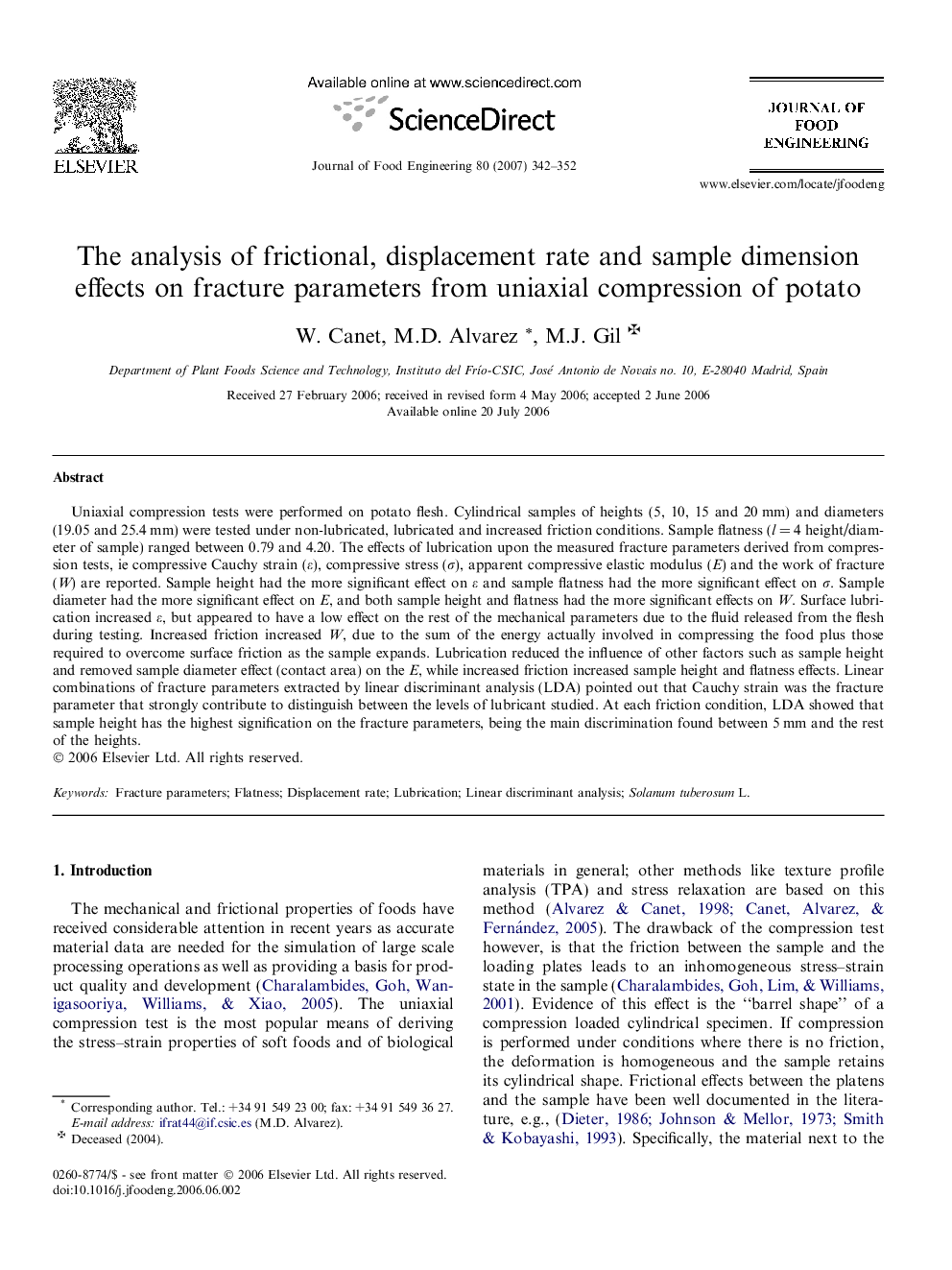| Article ID | Journal | Published Year | Pages | File Type |
|---|---|---|---|---|
| 226333 | Journal of Food Engineering | 2007 | 11 Pages |
Uniaxial compression tests were performed on potato flesh. Cylindrical samples of heights (5, 10, 15 and 20 mm) and diameters (19.05 and 25.4 mm) were tested under non-lubricated, lubricated and increased friction conditions. Sample flatness (l = 4 height/diameter of sample) ranged between 0.79 and 4.20. The effects of lubrication upon the measured fracture parameters derived from compression tests, ie compressive Cauchy strain (ε), compressive stress (σ), apparent compressive elastic modulus (E) and the work of fracture (W) are reported. Sample height had the more significant effect on ε and sample flatness had the more significant effect on σ. Sample diameter had the more significant effect on E, and both sample height and flatness had the more significant effects on W. Surface lubrication increased ε, but appeared to have a low effect on the rest of the mechanical parameters due to the fluid released from the flesh during testing. Increased friction increased W, due to the sum of the energy actually involved in compressing the food plus those required to overcome surface friction as the sample expands. Lubrication reduced the influence of other factors such as sample height and removed sample diameter effect (contact area) on the E, while increased friction increased sample height and flatness effects. Linear combinations of fracture parameters extracted by linear discriminant analysis (LDA) pointed out that Cauchy strain was the fracture parameter that strongly contribute to distinguish between the levels of lubricant studied. At each friction condition, LDA showed that sample height has the highest signification on the fracture parameters, being the main discrimination found between 5 mm and the rest of the heights.
